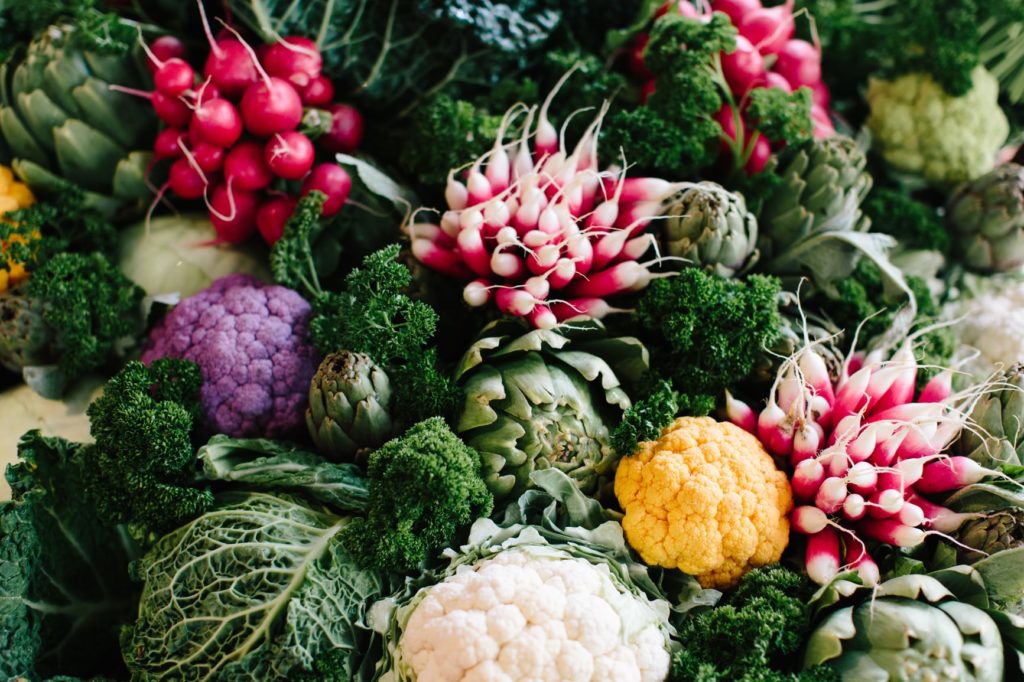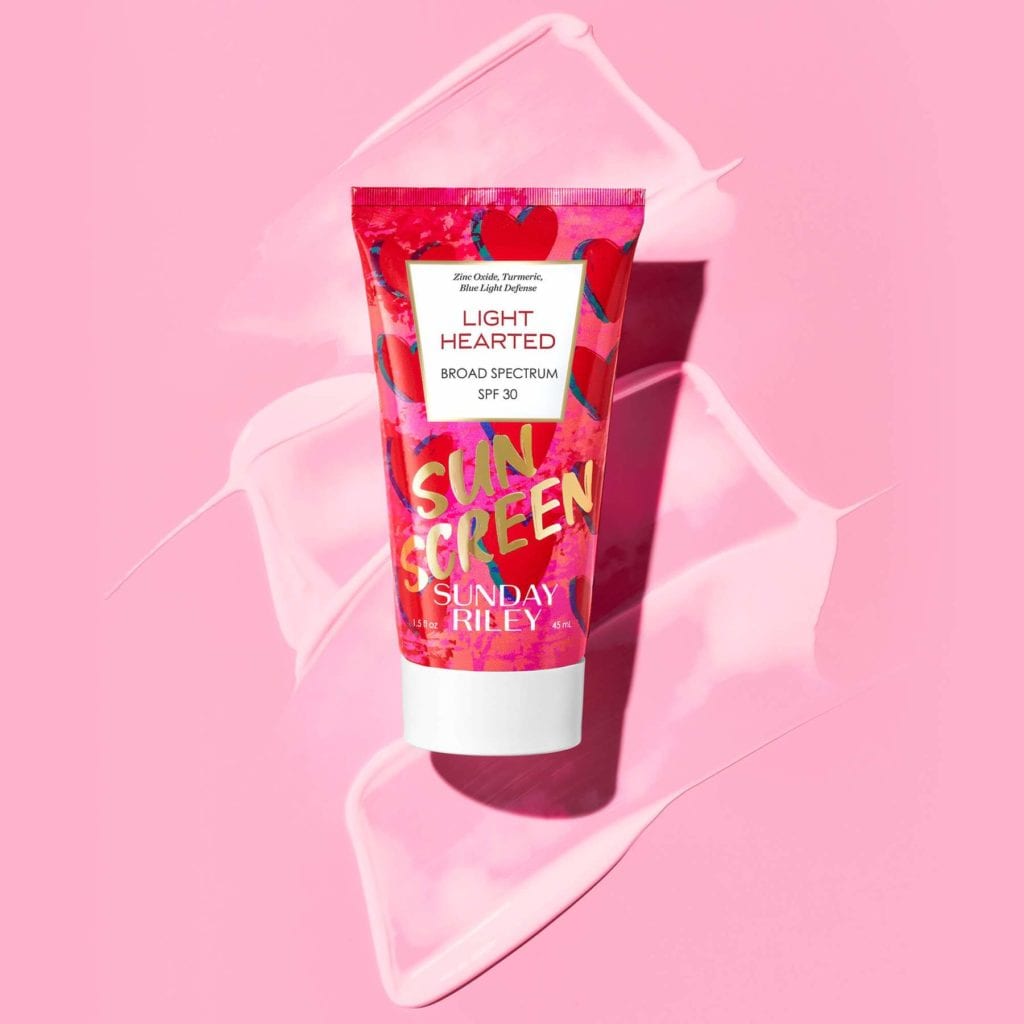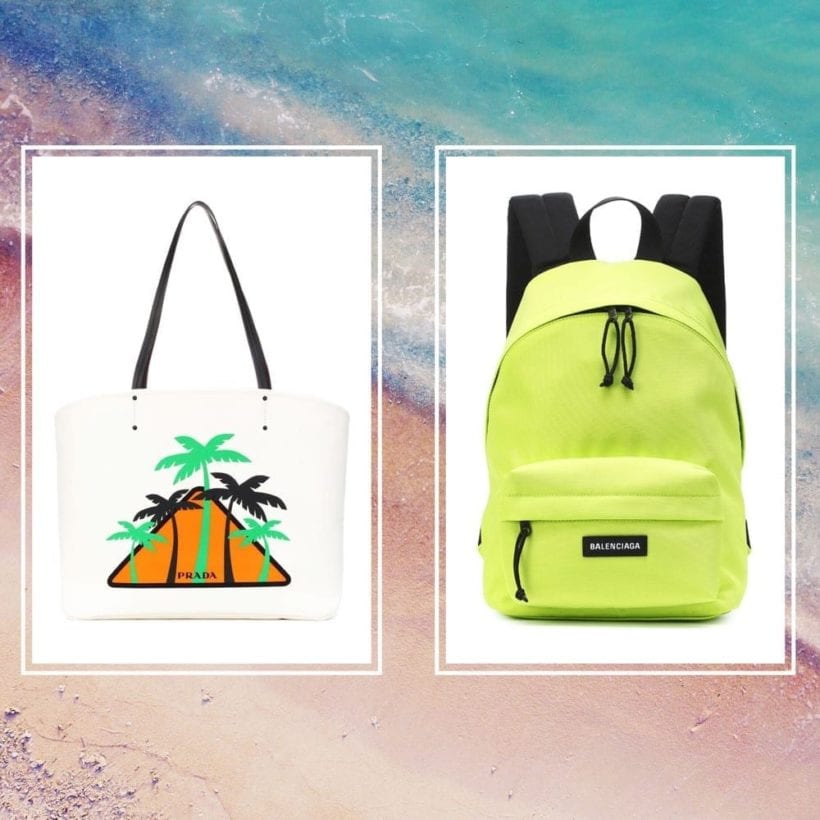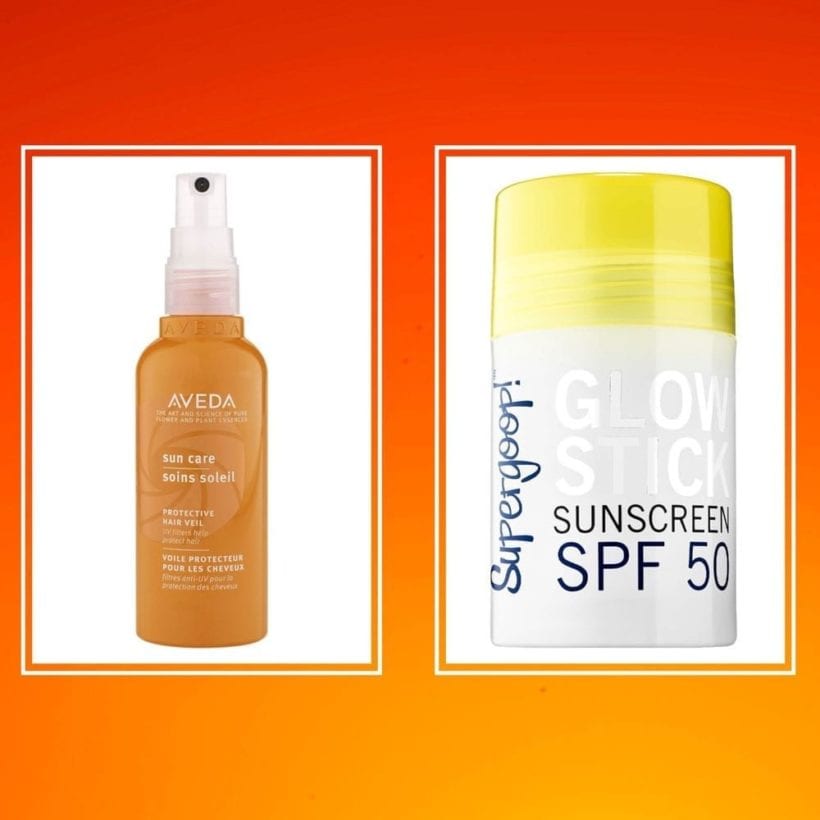As any dedicated skincare fans know, sun protection is a key pillar of good skin health. UV rays are responsible for 80% of skin aging which means protecting your skin is fundamental to ensure youthful-looking skin as you age. Wearing a full spectrum SPF product (like Sunday Riley’s new Light Hearted) on a daily basis (yep, even when it is cloudy and cold), is the easiest and the effective way to protect your skin. However, in recent years, some have hailed diet as a potential method for boosting your skin’s natural protection. Can the food you eat really help your skin’s defenses from the sun? We investigated.
The link between diet and sun protection
First, a little refresher on the sun and our skin. Our skin needs the sun’s rays for Vitamin D protection but too much sun and our skin can be damaged. The sun’s rays damage the skin in two ways: via UVA and UVB rays. Quick hack to remember this: UVA rays cause aging and UVB rays cause burning (‘A’ for aging, ‘B’ for burning).
The link between diet and our skin’s ability to defend itself from the sun comes down to oxidation. Essentially, excessive ultraviolet radiation damages the skin cells via a process called oxidative stress. Arguably, certain nutrients can increase the body’s defense from oxidative stress.
“The sun can cause oxidative damage to the skin and so ensuring our diet is full of nutrients is one way to protect our body,” dietician Jodie Brandman explains. “Consuming foods rich in antioxidants is one of the most powerful ways to do this as the compounds in them help to neutralize this oxidative stress,” she adds. Much like with antioxidant-rich skincare products, these antioxidants help fight free radicals (by neutralization or elimination) helping to protect the body from oxidative stress. Research backs this theory with one study noting the link between antioxidants, free radicals and age-related disease.
It’s not just antioxidants. Omega 3 can also help too. “Omega 3 is also vital for skin health and can help protect against sun damage as it reduces inflammation caused by the ultraviolet radiation,” Brandman notes. Emerging research in this field suggests that Omega 3 is a “promising candidate” in protecting skin from UV rays.
The danger of edible SPF
While there are certain skin benefits of eating some foods and emerging research pointing to sun protecting abilities, claiming that food alone can protect the skin from the sun is a dangerous narrative. The issue lies in claiming that food is a suitable alternative to a sun protective cream as opposed to something to be done adjacently. “Despite the rise in popularity of ‘edible SPF’, there is no evidence that these are safe and effective,” consultant dietician Sophie Medlin comments. “While a diet high in antioxidants and polyphenols will improve our overall defense against any cell damage, diet is not a safe or appropriate method of preventing sunburn,” she adds.
Problems come about when people stop using sunscreen and instead rely on a diet solely to protect their skin. So much so, the FDA released a statement warning against the use of diet and dietary supplements for sun protection. Considering 1 in 5 Americans will develop skin cancer by the age of 70 and more than two people die of skin cancer in the U.S. every hour, this is a serious issue. Especially when you take into account that five or more sunburns double your risk of skin cancer.
Foods to boost skin health
The good news? Foods that will improve skin health are also foods that are generally ideal for overall health. Packing your diet with these skin-loving foods is an all-around positive step. First up, antioxidants. “Some of the most important ones for the skin include beta carotene (which becomes vitamin A), vitamin C, vitamin E, lycopene, selenium and vitamin K,” Brandman notes. These are found in foods like sweet potato, liver, red vegetables and fruits like tomatoes and peppers, citrus fruits, almonds, sunflower seeds, avocado, leafy green vegetables, and egg yolks.

Second up, Omega 3. This is an essential fat found in oily fish. Fill your plate with salmon, sardines or mackerel to get this skin-loving ingredient in your diet. Or consider Omega 3 supplements too if you’re struggling to eat enough fish or simply don’t like the taste. Plus, Omega 3 isn’t just in fish. Vegans can still get their fix with sources including seaweed, chia seeds, flax seeds, kidney beans and edamame. There’s also Omega 3 supplements you can buy that are vegan approved.
While adding more antioxidant and Omega 3 rich foods to your diet will certainly improve your health and your skin, remember to always use sufficient sun protection (factor 30 or higher with both full spectrum UVA and UVB protection) at the same time.
We only recommend products we have independently researched, tested, and loved. If you purchase a product found through our links, Sunday Edit may earn an affiliate commission.








